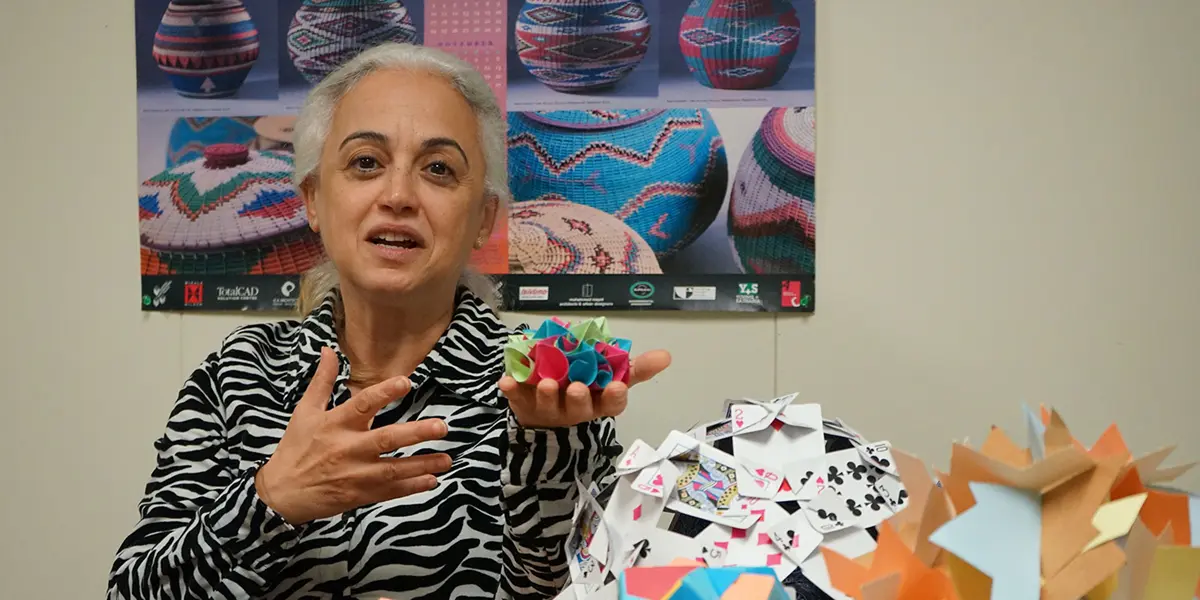Teaching math can be difficult, because some students find it repetitive and unconnected to their lives.
Assoc. Prof. of Education Iman Chahine has a solution for that: hands-on exercises that teach children math concepts through the construction of creative and beautiful objects, from origami to repeating “strip” patterns of basic shapes and colors. Making such objects and designs in beading, basketwork, knitting and paper-folding is a form of mathematical thinking, Chahine says.
“The hands become an extension of the mind. Thinking by doing is how mathematics becomes embodied knowledge,” she says.
Chahine is an ethno-mathematician who studies how different cultures develop different mathematical systems, based on what they value. For example, Zulu love letters are based on repetitions and variations on the simple diamond shape, but the placement and color of the diamonds in each letter conveys a unique message, she says. Chahine has also done research using mathematical modeling to understand kinship structures among the Warlpiri people in Australia.
Such embodied forms of math are understudied and underappreciated, as are the contributions of Arab, Chinese and Indian cultures to our current understanding of mathematics, Chahine says.
She’s trying to change that by teaching current and future educators to appreciate different cultural forms of mathematics – and to draw on that understanding to figure out creative, hands-on ways to teach math to the United States’ increasingly diverse school-age population.
“When we start with a motif of a single pattern, repeated – not only for 3-D objects but in flat designs like Ndebele murals – we are teaching algorithmic and computational thinking,” she says.
Chahine, who joined the School of Education in fall 2018 as part of a global hiring initiative, immediately began teaching a new class, Connecting Global and Local Issues in Education, for undergraduate education minors.
She has also taught ethno-mathematics to Ph.D. candidates with a prior degree in math, and is currently mentoring M.Ed. students doing action research projects for their capstones. Eventually, she hopes to bring ethno-mathematics to undergraduate education majors in a course that includes several weeks of immersive study abroad.
“My main focus is to help students understand what counts as mathematics from a global and cultural perspective,” she says. “Mathematical ideas are not fixed; they’re evolving all the time.”


